Turkey Tail Benefits (Trametes versicolor)
Turkey Tail (Trametes versicolor) is an edible mushroom and medicinal mushroom.

Anti-inflammatory Benefits
The Turkey Tail mushroom is a treasure trove of bioactive compounds, including Polysaccharopeptide Krestin (PSK) and Polysaccharopeptide (PSP), which contribute to its anti-inflammatory properties. Inflammation is a natural response by the immune system to injury or infection, but chronic inflammation can lead to various diseases. Turkey Tail’s bioactives have been shown to modulate this immune response, possibly reducing the risk of such diseases.
PSP, in particular, possesses notable anti-inflammatory effects that can inhibit the production of pro-inflammatory cytokines, thereby helping to manage inflammation in the body. This could be beneficial in the treatment and management of chronic inflammatory conditions.
Moreover, the anti-inflammatory action of Turkey Tail is not just limited to health benefits; it also has practical applications in the food industry. As a natural anti-inflammatory agent, it could potentially be incorporated into functional foods, contributing to the nutritional and therapeutical value of food products.
Learn about mushrooms with anti-inflammatory benefits.

Antioxidant Benefits
Turkey Tail mushrooms have been recognized for their remarkable antioxidant properties, which are primarily attributed to the various bioactive compounds they contain, including polysaccharides, phenol, and flavonoid constituents. Antioxidants are essential for neutralizing harmful free radicals in the body, which can lead to oxidative stress and contribute to the development of chronic diseases and aging.
Studies have identified the presence of flavonoids in Turkey Tail, which are well noted for their antioxidant activity. These compounds can effectively scavenge free radicals, providing cytoprotective effects. For instance, the enzymatic oxidation of flavonols by Trametes versicolor laccase has yielded oxidation products with potent antioxidant capabilities, as revealed by the evaluation of their free-radical scavenging activities using the DPPH assay.
Research indicates that Turkey Tail mushrooms offer a high antioxidant capacity through their extracts. Various studies have correlated the total phenolic and flavonoid content of such extracts with significant radical scavenging and antioxidant activities. This suggests that incorporating Turkey Tail mushrooms could be beneficial in reducing oxidative stress and preventing cellular damage and aging.
Regarding practical applications, Turkey Tail mushrooms have been suggested as a potential ingredient in health-promoting food supplements due to their bioactive profiles high in antioxidants. Considering the substantial presence of hydroxybenzoic acids and related compounds in these mushrooms, they have been shown to exhibit strong antiradical properties while selectively targeting certain cancer cell lines without affecting normal cells, implying benefits beyond mere antioxidant effects.
The growing interest in medicinal mushrooms and their role in diet and therapy further underlines the importance of mushrooms like Turkey Tail as natural sources of antioxidants. While their therapeutic and nutraceutical potentials are promising, ongoing research and clinical studies will help further substantiate these benefits and elucidate the mechanisms behind their health-supporting properties.
Learn about mushrooms with antioxidant benefits.

Nutrition Benefits of Turkey Tail
Turkey Tail mushroom is not just renowned for its medicinal properties but also its nutritional value. It is a source of vitamins, minerals, and other bioactive compounds that contribute to a balanced diet. Ethnomycological research in the Kilum-Ijim mountain forest, as seen in Cameroon, shows that indigenous communities have long valued mushrooms like Turkey Tail as a source of nutrition as well as medicine.
This mushroom provides a healthy dose of dietary fiber, which is important for digestive health, and it contains a variety of essential amino acids and vitamins that support overall wellness. The study emphasizes the importance of traditional knowledge in understanding the nutritional uses of Turkey Tail, highlighting it as a vital food source in local diets and drawing attention to the need to preserve such indigenous wisdom.
Community reliance on mushrooms for sustenance underscores the nutritional significance of Turkey Tail, which comprises a range of antioxidants that help combat oxidative stress in the body. Sadly, the study from Cameroon also indicates a risk to the conservation of these mushrooms and their traditional uses due to environmental threats. Therefore, not only is the nutritional uptake of Turkey Tail significant, but so is the preservation of the ecosystems where they thrive and the cultural practices that respect them.
Learn about mushrooms with nutrition benefits.

Anticancer Benefits
Turkey Tail is renowned for its anticancer properties, largely attributed to its rich composition of bioactive compounds, including polysaccharides such as beta-glucans. These naturally occurring substances are known for their ability to stimulate the immune system and display antitumor activities, enhancing the maturation, differentiation, and proliferation of immune cells.
In addition to their immune-stimulating effects, specific components of Turkey Tail, such as PSK and PSP, have been used in clinical settings, primarily in Asia, to treat various types of cancer. The Medicinal Mushrooms review emphasizes the potential therapeutic benefits of these mushrooms, noting the necessity for more detailed clinical studies to fully establish their safety and therapeutic dosage.
Furthermore, research on Turkey Tail ethanol extracts has shown significant promise as a health-promoting supplement. A study demonstrated cytotoxic effects against certain cancer cell lines, such as breast and liver cancers, highlighting its potential selectivity in targeting cancerous cells without harming normal cells. With high levels of phenolic and flavonoid compounds, these findings support the use of Turkey Tail as a complementary component in cancer treatment protocols and cancer-preventative dietary supplements.
The wealth of bioactive substances in Turkey Tail combined with traditional usage and modern scientific validation positions it as a valuable ally in the fight against cancer, meriting its inclusion in discussions for integrative oncology strategies.
Learn about mushrooms with anticancer benefits.

Anti-proliferative Benefits
Turkey tail is renowned not only for its immune-enhancing effects but also for its potential in combatting cancer cell growth. Studies on polysaccharide-rich extracts from Turkey Tail mushroom have demonstrated significant anti-proliferative activity against colon cancer cell lines. These findings are vital as they suggest a possible complementary treatment for cancer.
The research unravels how Turkey Tail extract impedes not only the proliferation but also the migration and invasion of cancer cells, key processes in cancer progression. Remarkably, it also contributes to weakening the ability of cancer cells to grow without attachment, which is a characteristic of malignancy. Moreover, Turkey Tail's compounds enhance the expression of E-cadherin, a protein known to suppress cancer metastasis, and decrease the activity of metalloproteinase-2, an enzyme that aids in breaking down the extracellular matrix and can facilitate cancer spread.
Another vital aspect of this research is the observed synergistic effect when Turkey Tail extract is combined with 5-fluorouracil, an established chemotherapy drug. The combination heightened the cytotoxic impact on cancer cells, suggesting that Turkey Tail could be an adjunct therapy to traditional chemotherapeutics, potentially improving their efficacy and reducing their side effects.
Learn about mushrooms with Anti-proliferative benefits.
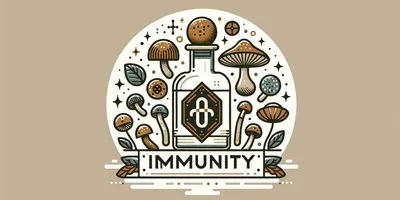
Supports Immune Function in Cancer Therapy
Turkey tail mushroom has been of particular interest in cancer therapy, where maintaining a robust immune system is crucial. Among its many attributes, this mushroom is known to offer support to patients undergoing cancer treatments. A scoping review has shed light on the interaction between Turkey tail and traditional cancer therapies, suggesting that it may help maintain immune function during this challenging time.
The review uncovers evidence that Turkey tail could potentially prevent lymph node metastasis and improve overall survival among patients with gastric, breast, and colorectal cancers. It also points to the possibility that Turkey tail can decrease the side effects caused by chemotherapy while improving the quality of life of cancer patients.
Although the promise is encouraging, the review acknowledges the necessity for larger randomized controlled trials to confirm the most effective dosages and understand the full extent of clinical outcomes. Still, the inclusion of Turkey tail in supportive care for cancer treatments reflects its important role in immune health and patient well-being.
Learn about mushrooms with Immunity benefits.

Non-toxic Benefits
Turkey Tail mushroom has shown promising non-toxic benefits in scientific research, particularly in its activity against Toxoplasma gondii, a harmful parasite implicated in toxoplasmosis. Without causing significant harm to human cells, Turkey Tail extract has been proven to inhibit the growth of T. gondii, which is critical for protecting vulnerable individuals such as pregnant women and those with compromised immune systems.
The study not only demonstrated the extract's effectiveness in obstructing the parasite's growth, but it also indicated that it does so by inducing oxidative stress in the parasite and causing damage to its mitochondrial membrane potential. Remarkably, this is achieved with minimal cytotoxicity, making the Turkey Tail mushroom a promising candidate for developing non-toxic anti-parasitic treatments. The morphological changes observed in the tachyzoites upon treatment suggest a profound impact of Turkey Tail constituents at the cellular level, opening doors to new, safer therapeutic avenues.
Considering the limitations in efficacy, safety, and affordability of current toxoplasmosis treatments, the discovery of Turkey Tail’s non-toxic effects provides a compelling case for developing it into an alternative therapy. With further exploration and validation, the mushroom's natural extracts might lead to innovative solutions that are both effective against infections and safe for the patients.
Learn about mushrooms with Non-toxic benefits.

Anti-cancer Benefits
Turkey Tail is renowned for its bioactive compounds, particularly Polysaccharopeptide Krestin (PSK) and Polysaccharopeptide (PSP), which have been associated with anti-cancer properties. These compounds contribute to enhancing the body's immune defenses, particularly the activation of natural killer (NK) cells, which play a pivotal role in the body’s innate immune response to tumors.
The impact of such compounds on cancer has been a subject of interest, suggesting their potential to serve as adjunct therapies alongside conventional cancer treatments. Findings indicate that Turkey Tail's polysaccharides may alter cytokine levels and immune cell activity, thereby assisting the immune system in targeting and eliminating cancer cells.
In addition to their immunomodulatory effects, these substances are under exploration for their potential to shift the balance towards the body's ability to combat malignancies. While the clinical trials are promising, they underscore the necessity for more extensive studies to fully substantiate the anti-cancer benefits of Turkey Tail and to refine its use in both cancer therapy and general health maintenance.
Learn about mushrooms with Anti-cancer benefits.

Anti-tumor Benefits
The compounds in Turkey tail are not just immune boosters; they also offer potential anti-tumor benefits. Polysaccharide-K (PSK), a compound found in Turkey tail, has been studied for its role in cancer treatment, particularly in enhancing the efficacy of chemotherapy.
A review addressing the therapeutic effects of medicinal mushrooms, including Turkey tail, has shown promising outcomes in the context of high-mortality cancers such as gastric, breast, and colorectal cancers. According to the scoping review, Turkey tail may help in preventing the metastasis of cancer to lymph nodes, improving overall survival rates, reducing the side effects associated with chemotherapy, maintaining immune functions, and improving the quality of life for cancer patients.
While these findings are encouraging, the review also indicates that there is a need for further large-scale randomized controlled trials to determine the most effective doses and to understand the exact clinical benefits of Turkey tail in cancer therapy.
Learn about mushrooms with Anti-tumor benefits.

Supports Detoxification
An astonishing benefit of Turkey Tail is its potential role in detoxifying harmful substances. Notably, it has been found to be capable of degrading aflatoxin B1 (AFB1), a potent carcinogen found in contaminated foodstuffs. This detoxification process is facilitated by an enzyme known as Trametes versicolor aflatoxin B1-degrading enzyme (TV-AFB1D).
A groundbreaking study highlighted the recombinant expression of TV-AFB1D in Pichia pastoris GS115 and its successful application in reducing AFB1 in contaminated peanuts. The enzyme expressed by this engineered yeast demonstrated effective degradation capabilities, underlining a promising biotechnological solution for mitigating the risks of aflatoxin exposure in food and feed products.
Another research project further validated these findings by characterizing the efficacy of TV-AFB1D in degrading AFB1 in contaminated rice in situ. The enzyme, when expressed in modified yeast strains, not only broke down AFB1 but also facilitated ethanol production. The temperature and pH conditions for optimal enzyme activity were identified, enhancing its practical application for purifying agricultural goods.
Together, these studies showcase Turkey Tail's contribution to food safety, offering a biological approach to neutralize toxins and promote public health through detoxification.
Learn about mushrooms with Detoxification benefits.

Boosts Immune Function
The Turkey Tail mushroom is renowned for its capacity to fortify the immune system. It contains active components, like polysaccharopeptide Krestin (PSK) and Polysaccharopeptide (PSP), which are powerful allies in the body's immune response. Research has shown that these substances can enhance natural killer (NK) cell activity, a pivotal element of our innate immunity crucial for combating infections and cancerous cells.
Increasing attention has been paid to the immunomodulatory effects of Turkey Tail in cancer management. Clinical trials highlight its potential as an adjuvant therapy, possibly improving outcomes by stimulating the immune system to better fend off malignancies and other diseases. Medical practitioners are becoming more cognizant of the importance of such immunostimulating properties for overall health and well-being.
Additionally, the bioactive components of the Turkey Tail mushroom have been integrated into functional foods, distinguishing itself in the food industry due to its health attributes and applications. Though traditionally consumed in Asian medicine, modern science is now recognizing its potential benefits, including its role in immune system enhancement.
Learn about mushrooms with immune boost benefits.

Delays Metastases
The therapeutic properties of Turkey Tail mushroom have shown promise in slowing down the spread of cancer. A notable study titled Single Agent Polysaccharopeptide Delays Metastases and Improves Survival in Naturally Occurring Hemangiosarcoma revealed significant findings. Using a double-blind randomized study on dogs diagnosed with splenic hemangiosarcoma, researchers administered various doses of polysaccharopeptide (PSP) to assess its efficacy without concurrent chemotherapy. Particularly, dogs receiving the highest dose of 100 mg/kg/day experienced a marked delay in the progression of metastatic disease and an extension in survival times, which are the longest documented for this aggressive form of cancer.
This compelling evidence indicates a potential role for Turkey Tail mushroom as an agent that can postpone the spread of metastases in cancer, possibly offering a non-toxic therapeutic option to improve the longevity and quality of life of cancer patients. Remarkably, the study observed no significant adverse effects in the PSP-treated dogs, hinting at the mushroom's safety when used for medical purposes.
Learn about mushrooms with Delays metastases benefits.

Improves Survival Rates
The administration of Turkey tail's active ingredient, Polysaccharopeptide (PSP), has been linked with significant improvements in survival rates among canine patients suffering from hemangiosarcoma—a severe form of cancer prevalent in dogs. Research was published reflecting a study on dogs diagnosed with this aggressive cancer, which tends to rapidly metastasize. A notable facet of the study was its double-blind, randomized nature and the administration of varying PSP dosages.
Dogs subjected to the highest dosage, 100 mg/kg/day of PSP, experienced a noteworthy delay in the onset of metastatic disease, translating to longer survival times—a major milestone given the typical aggressiveness of hemangiosarcoma. These promising results came without any significant side effects or alterations in the dogs' blood chemistry, suggesting a treatment that is both effective and well-tolerated.
This observation indicates the potential role of Turkey tail in not just boosting immune functions but also in directly contributing to increased survival in the face of certain cancers. While the subjects of the study were canine, the implication that PSP could similarly benefit human cancer patients cannot be overlooked, suggesting a possibility of new, accessible treatments that could enhance quality of life and mortality outcomes.
Learn about mushrooms with Improves survival benefits.
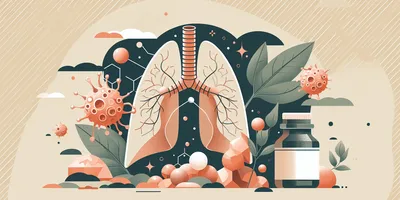
Tumor Suppression Benefits
Turkey tail is well regarded for its cancer-fighting properties, notably due to a compound known as polysaccharide-K (PSK). PSK has been found to augment the efficacy of cancer treatments. For instance, a study showed that when PSK is combined with docetaxel, a chemotherapy drug used for prostate cancer, it significantly increased tumor suppression compared to the use of the chemotherapy alone in an immunocompetent murine model of human prostate cancer.
The combination not only led to enhanced apoptosis, or programmed cell death, which is crucial for halting the spread of cancer cells, but it also reduced the side effect of immunosuppression often seen with chemotherapy treatments. This reveals that Turkey tail can potentially reduce the negative impacts on the immune system typically associated with conventional cancer therapies.
Furthermore, the study highlighted the immunomodulatory benefits of Turkey tail. The addition of PSK increased the infiltration of immune cells, such as CD4+ and CD8+ T cells, into the tumor environment and boosted the expression of IFN-γ. This suggests that Turkey tail doesn't just assist in direct tumor suppression but may also enhance antitumor immune responses, creating a dual front in the fight against cancer. These findings support the potential role of Turkey tail as a valuable adjunct in cancer treatment regimens.
Learn about mushrooms with Tumor suppression benefits.

Reduces Immunosuppression During Chemotherapy
One of the significant challenges in cancer treatment is the immunosuppression caused by chemotherapy, which can leave patients vulnerable to infections and other health complications. Turkey tail offers hope in this area by potentially reducing the negative impact on the immune system.
According to research, Polysaccharide-K (PSK), an active compound found in turkey tail, appears to augment the therapeutic effects of docetaxel, a common chemotherapy drug, while reducing its immunosuppressive side effects. In a study involving an immunocompetent murine model of human prostate cancer, the combination of PSK and docetaxel not only provided superior tumor suppression but also lessened the reduction of white blood cells compared to chemotherapy alone.
Furthermore, this combination therapy enhanced the presence of tumor-infiltrating immune cells, including CD4+ and CD8+ T cells, and improved the expression of IFN-γ. These findings suggest that turkey tail can boost the immune system's ability to fight cancer while concurrently alleviating some of the immune system complications frequently associated with rigorous cancer treatments.
Learn about mushrooms with Reduced immunosuppression benefits.

Enhanced Immunity Benefits
Turkey Tail is well-regarded for its potential to enhance the immune system's ability to combat various diseases, including cancer. A notable aspect of its immune-supporting capacity is the presence of Polysaccharide-K (PSK), known for its significant immune-boosting effects. Recent studies, such as one where PSK was combined with the chemotherapy drug docetaxel, have provided insight into the immunological benefits and mechanisms.
In this study focusing on castration-resistant prostate cancer in an immunocompetent murine model, the research demonstrated that PSK not only augmented the tumor-suppressing effects of docetaxel but also enhanced the programmed cell death, leading to a more effective tumor reduction than when either treatment was used separately. Remarkably, the combination therapy showed reduced immunosuppressive effects, as evidenced by lesser declines in white blood cell counts compared to docetaxel alone.
Moreover, the synergistic effect of the combined treatment was observed in the form of increased infiltration of vital immune cells such as CD4+ and CD8+ T cells within the tumors. Furthermore, there was a notable enhancement in the mRNA expression of IFN-γ, a cytokine critical for innate and adaptive immunity against tumors. These findings underscore the significant role that Turkey Tail can play in boosting the anti-tumor immune response, suggesting that the mushroom's extracts may serve as a valuable adjunct to conventional cancer treatments.
Learn about mushrooms with Enhanced immunity benefits.
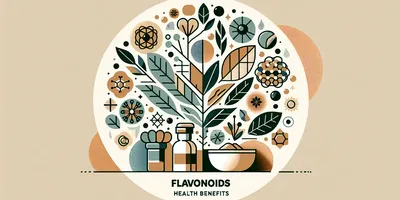
Rich in Flavonoids
Turkey tail is not only known for its immune-boosting properties but also for its rich flavonoid content. Flavonoids are a group of phytonutrients found in various plants and are responsible for the vivid colors in fruits, vegetables, and mushrooms. They have significant antioxidant properties, which protect the body against oxidative stress and reduce the risk of chronic diseases.
In turkey tail, the presence of flavonoids contributes to its potent antioxidant activity. According to a study, the methanol extracts of this mushroom have highlighted its pronounced antioxidant effects, while water extracts were shown to contain higher total flavonoids. These bioactive compounds include phenolic acids, flavonols, and flavones, which are essential for combatting inflammation and supporting overall health.
The study's findings underscore the importance of harvesting techniques and extraction methods, which can maximize the mushroom's flavonoid content. Incorporating turkey tail into one's diet could, therefore, provide a valuable source of these beneficial compounds, making it an excellent addition to a health-conscious lifestyle.
Learn about mushrooms with Flavonoid benefits.

Anti-invasive Benefits
Turkey tail is not only a functional food but also possesses potent anti-cancer properties. Studies show that turkey tail extracts can significantly impede the invasion and proliferation of colon cancer cells. It does this by interfering with the cancer cells' ability to spread and by promoting healthier cellular activities.
Specifically, the polysaccharide-rich components of turkey tail contribute to an increase in the expression of E-cadherin, an important protein that helps cells adhere together, thereby reducing the potential for cancerous cells to disseminate. Coupled with a decrease in the activity of the MMP-2 enzyme that aids in breaking down extracellular matrix, the overall anti-invasive effect is quite notable. This indicates a potential for turkey tail to not only slow the growth of cancerous cells but also to curb their invasive tendencies.
Furthermore, the combinatorial use of turkey tail extracts with established chemotherapy drugs like 5-fluorouracil may enhance the efficacy of cancer treatment, as suggested by research involving colon cancer cell lines. Such synergistic effects could lead to improved outcomes for patients with colorectal cancer.
Learn about mushrooms with Anti-invasive benefits.
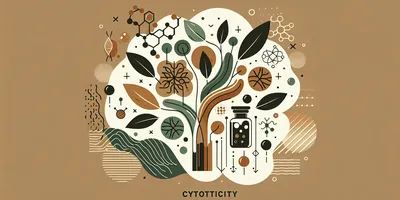
Supports Cytotoxicity Against Cancer Cells
The Turkey Tail mushroom has shown promising cytotoxic effects that may contribute to cancer therapy. A study focused on the anti-proliferative and anti-invasive potential of polysaccharide-rich extracts from the mushroom demonstrated significant inhibitory activities against colon cancer cells. These extracts were able to suppress key processes that cancer cells rely on, such as proliferation, migration, invasion, and anchorage-independent cell growth.
Furthermore, the research uncovered that Turkey Tail extracts might enhance the structural integrity of cells by increasing the expression of E-cadherin, an important molecule that helps cells stick together, thereby preventing cancer spread. Simultaneously, a decrease in the activity of the MMP-2 enzyme was observed, which plays a crucial role in breaking down the extracellular matrix, a process cancer cells exploit to invade new areas of the body. It suggests that Turkey Tail's bioactive compounds could help hinder the invasion and metastasis of cancer cells.
Combining Turkey Tail extracts with conventional chemotherapy drugs, such as 5-fluorouracil, has also been found to increase cytotoxicity towards cancer cells, opening up potential synergistic applications in cancer treatment. The study highlights the mushroom's potential integrative role alongside standard cancer therapies, possibly leading to more effective treatment strategies.
Learn about mushrooms with Cytotoxicity benefits.

Aflatoxin Control Benefits
Aflatoxin contamination is a significant concern in agriculture and food safety due to its carcinogenic properties, particularly causing liver cancer in humans and animals. Turkey tail, with its powerful enzymatic arsenal, offers a promising solution for aflatoxin control in maize, one of the most frequently contaminated crops.
Research has demonstrated that Turkey tail, when cultivated on sugar beet pulp, can inhibit the production of aflatoxin B1 by Aspergillus flavus. This not only mitigates the risk of aflatoxin contamination but also utilizes agricultural waste products, such as sugar beet processing by-products, offering an eco-friendly and cost-effective means of biocontrol.
Moreover, the study indicates that the laccase enzymes present in culture filtrates from Turkey tail can significantly diminish the aflatoxin B1 content in maize kernels. The degradation of aflatoxins by these enzymes does not produce further toxic by-products, ensuring a safer approach to managing the occurrence of these mycotoxins in food commodities. With these promising findings, Turkey tail could play an integral role in improving the quality and safety of animal feed and human food products by providing a sustainable method to tackle the issue of aflatoxin contamination.
Learn about mushrooms with aflatoxin control benefits.

Cancer Inhibition Benefits
Research on Turkey Tail mushrooms has shown promising results in inhibiting cancer cell proliferation. A study by Chengo et al. found that an aqueous extract from the mushroom exhibited significant antiproliferative activity against cancer cell lines, including breast and prostate cancer.
The study demonstrated that the Turkey Tail extract could hinder the growth of these cancer cells in a dose-dependent manner. Importantly, the effect was comparable to the chemotherapy drug Tamoxifen, but without the same level of impact on normal cells like hepatocellular carcinoma and normal kidney and intestinal epithelial lines. This indicates a promising selective toxicity towards malignant cells that spares healthy ones.
Containing a diverse profile of phytochemicals such as saponins, tannins, steroids, terpenoids, and flavonoids, Turkey Tail mushrooms may offer a natural and potentially safer alternative to certain conventional cancer treatments. The findings support the notion that Turkey Tail can play a role in cancer therapy, potentially enhancing patient outcomes when used alongside other treatments.
Learn about mushrooms with Cancer inhibition benefits.

Exhibits Selective Toxicity Against Cancer Cells
Turkey tail presents a promising therapeutic strategy due to its selective toxicity towards cancer cells. A study by Chengo et al. demonstrated that an aqueous extract of this mushroom could inhibit the proliferation of certain cancer cell lines. Remarkably, the extract was able to target breast cancer (4T1) and prostate cancer (DU145) cells effectively while showing little to no adverse effects on normal cell lines, including those from the liver, intestines, and kidneys.
The findings suggest that the extract possesses components that selectively exert antiproliferative effects. This means that turkey tail may be capable of eradicating cancerous cells with minimal impact on the surrounding healthy tissues. Such selective anticancer activity could open the door to new, more compassionate treatment options that do not carry the same risk of side effects as conventional chemotherapy. The study’s results, which reveal an equivalent potency to the chemotherapy drug Tamoxifen for certain cell lines, further corroborate the potential medicinal value of turkey tail against cancer.
The research provides a compelling case for the mushroom's constituents, such as saponins, tannins, steroids, terpenoids, and flavonoids, as the probable contributors to its anticancer properties. For those interested in delving deeper into this study, read more about the research by Chengo et al.
Learn about mushrooms with Selective toxicity benefits.

Supports Cancer Management
Turkey Tail is gaining recognition in the field of oncology for its support in cancer management. This functional mushroom is enriched with bioactive compounds like polysaccharide-K (PSK) and polysaccharide-peptide (PSP) which have drawn scientific attention due to their potential immune-stimulating effects. A noteworthy aspect of these compounds is their role in complementing conventional cancer therapies.
The intake of Turkey Tail extracts has become a common practice among cancer patients exploring complementary and alternative medicine (CAM). As noted in recent research, these extracts have a prominent place in traditional medical practices that often coincide with a patient’s cultural background. Given these trends, the clinical relevance of Turkey Tail extracts in cancer treatment cannot be overstated.
While the use of Turkey Tail supplements is on the rise, it is crucial for healthcare professionals to stay informed regarding their patients' use of natural health products. Such awareness can foster crucial conversations that might otherwise be overlooked, potentially aiding in the optimization of cancer care strategies. Therefore, embracing patient dialogue about the use of Turkey Tail can help integrate these practices into a holistic approach to cancer management.
Learn about mushrooms with cancer support benefits.

Treats Fever and Rheumatic Ailments
Turkey Tail is not only commended for its immune-supportive properties but also exhibits potential in managing febrile conditions and rheumatic symptoms. The ability to combat infections, which could be responsible for feverish conditions, is implied by Turkey Tail's capacity to confront microbiological agents that might contribute to these states.
Insights from historical medical practices, as documented in the paper titled "Some Observations on Rheumatism and Gout, with a New Departure in their Cure," suggest that fever and rheumatic conditions, which could stem from microbial sources, were managed using antiseptic approaches influenced by the germ theory. The study discusses the potential origins of such conditions and hints at the importance of addressing microbial involvement in their treatment.
While Turkey Tail itself does not contain salicylate of soda or the other specific remedies mentioned for treating urine diseases with parasitic fungi, its noted antiseptic and anti-microbial qualities highlight an age-old understanding of the importance of targeting microbes to alleviate certain health conditions. Advances in modern medicine continue to explore the role of botanicals in supporting treatments informed by germ theory, such as those indicated for rheumatic ailments and fever mitigation.
Exploration into traditional and contemporary medicinal practices underscores the potential of natural agents like Turkey Tail to contribute to the holistic management of fever and associated symptoms. They serve as a complementary approach in tandem with the progression of medical science in understanding and treating febrile illnesses.
Learn about mushrooms with treats fever benefits.

Anti-Parasitic Benefits
The use of Turkey tail for its anti-parasitic properties is garnering attention in scientific circles. Specifically, its extract has been studied for its activity against Toxoplasma gondii, the parasite responsible for toxoplasmosis. This condition can be particularly harmful to pregnant women, unborn babies, and individuals with compromised immune systems.
Current treatments for toxoplasmosis are often limited by their efficacy, safety, and affordability. However, studies have shown that Turkey tail exhibits minimal toxicity to human cells while effectively inhibiting the growth of T. gondii. This suggests that Turkey tail could be a potential source of new, non-toxic treatments for parasitic infections. The research shows that Turkey tail extract can induce the production of reactive oxygen species in the tachyzoites and disrupt their mitochondrial membrane potential, which compromises their growth and survival.
Moreover, the extract has been observed to cause morphological changes in T. gondii, resulting in the deformation of the parasite's structure. This way of attacking the parasite aligns with the broader medical practice of using anti-parasitic agents to manage and potentially alleviate infections. Though the exact components responsible for these effects are still under investigation, this evidence reinforces the role that Turkey tail could play in the development of innovative anti-parasitic treatments founded in natural compounds.
The implications of Turkey tail's effectiveness in combating parasitic infections are significant, especially considering the historical context of seeking cures for microorganism-originated diseases. In the past, various treatments like salicylate were explored, but none provided a holistic solution, particularly for infections like rheumatic fever. As outlined in the historical paper on rheumatism and gout, the need for effective parasitic treatments has long been a part of medical science, emphasizing the value Turkey tail could bring to modern healthcare.
Learn about mushrooms with anti-parasitic benefits.

Improves Sanitation and Antimicrobial Action
Turkey Tail is renowned not only for its immune-boosting qualities but also for its contribution to improving sanitary conditions through its antimicrobial properties. This is of particular importance when considering the fight against microorganisms that cause diseases, as explored in a study titled Some Observations on Rheumatism and Gout, with a New Departure in their Cure.
As detailed in the research, the identification and treatment of diseases by understanding their microbial origins has been a significant milestone in medical science. In particular, the study delves into the treatment of parasitic fungi that affect urine diseases, highlighting the relevance of antiseptics and the germ theory in medical practice. By extension, the natural compounds found in Turkey Tail have drawn attention for their potential to serve as ecological antiseptics, helping to maintain hygiene and prevent the spread of infections in medical and everyday environments.
The paper points to the growing appreciation for microbial management in medicine, acknowledging the great benefits of antiseptic surgery and sanitary precautions—a concept that resonates with the natural sanitation abilities of Turkey Tail. These capabilities suggest that Turkey Tail could be employed as a supportive sanitary agent, complementing conventional antiseptics to enhance protective measures against contagious diseases, and contribute to overall public health improvements.
Learn about mushrooms with improves sanitation benefits.

Enhances Remote Diagnosis
One of the intriguing benefits of Turkey Tail is its potential use in supporting telemedicine initiatives, especially in areas where access to specialized healthcare is limited. A study conducted in the Brazilian Amazon, where healthcare services often face challenges due to geographic and economic barriers, highlighted the value of eHealth solutions. This research demonstrated the effectiveness of telemedicine in providing crucial diagnostic services for skin lesions and cardiovascular diseases among remote and indigenous populations.
Through the project's use of digital information acquisition and delivery systems, medical experts were able to assess and diagnose conditions without the need for physical presence. The methodology, which included the collection of ECGs and skin images, followed by expert analysis, has shown that innovations in telemedicine can have a substantial impact on public health. In the context of Turkey Tail, the use of this mushroom could potentially aid in the management or prevention of some health issues, thereby reducing the frequency of required medical consultations for individuals in remote locations.
In relation to Turkey Tail, utilizing its immune-supporting properties could also facilitate the management of health conditions remotely, which is particularly beneficial for communities with restricted healthcare access. By possibly reducing the incidence or severity of diseases, Turkey Tail might indirectly contribute to the efficiency of telemedicine services, exemplifying a synergy between traditional remedies and modern technologies.
Learn about mushrooms with remote diagnosis benefits.

Accessible Care Benefits
The rising interest in natural and complementary health approaches has highlighted the Turkey Tail mushroom as a significant contributor to accessible care. With its unique properties, Turkey Tail serves not just as a therapeutic agent but also as a cornerstone in innovative health delivery methods, like telemedicine. By incorporating Turkey Tail supplements into telehealth practices, patients in remote and economically disadvantaged areas can receive support for their immune systems, which is crucial for their overall health maintenance.
One of the primary challenges in such regions is access to specialized healthcare resources. Studies like the telemedicine experiment in the Brazilian Amazon demonstrate the potential for digital health platforms to bridge these gaps. The use of telemedicine, akin to supplements like Turkey Tail, can provide a dynamic and low-cost solution to healthcare delivery. Integrating natural supplements into such platforms could offer further healthcare advantages, particularly for prevention and management of skin lesions and cardiovascular diseases, which were the focus of the study in Amazon.
This approach can be especially beneficial for urban and indigenous populations, who may otherwise have limited access to medicinal resources. The ability to manage and potentially reduce the incidence through the immune-boosting properties of Turkey Tail could significantly improve their quality of life. Indeed, leveraging the synergy between natural medicine like Turkey Tail mushroom and cutting-edge telehealth initiatives offers a promising avenue for enhancing healthcare accessibility and outcomes.
Learn about mushrooms with accessible care benefits.

Immunostimulating Benefits
The Turkey Tail mushroom has been recognized for its substantial impact on immune health throughout history. Its therapeutic use in traditional medicine spans various cultures, particularly in parts of Asia and Eastern Europe. Integral to its immunostimulating capabilities are the polysaccharides, most notably β-glucans, that have been identified within the mushroom.
These β-glucans are known for their potent immunomodulatory properties, which include enhancing the immune system and exhibiting antitumor activities. The actions they provoke within the body are diverse, ranging from the maturation and proliferation of immune cells to the modulation of the host immune response. This results in a fortified defense system, more equipped to combat infections and diseases.
Moreover, Turkey Tail-derived substances like PSK and PSP have been used in clinical trials—predominantly in Asia—for their anticancer properties. The paper explicitly outlines the potential of these mushrooms in treating various types of cancers, due to their abilities to initiate and boost immune cell production and differentiation.
As people seek out natural and effective supplements to support their health, the market for medicinal mushroom-derived dietary supplements (DSs) has blossomed. Featuring both safety and efficacy, these supplements provide a standardized form of beneficial compounds, eliminating the variability found in wild-harvested specimens. Turkey Tail mushrooms' importance in this growing market—valued at approximately $13 billion US dollars—attests to their respected place in immunotherapeutic applications and general wellness promotion.
Learn about mushrooms with immunostimulating benefits.
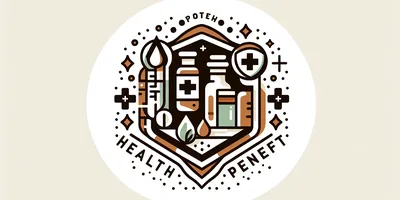
Health Protection Benefits
Turkey Tail has shown remarkable potential in protecting environmental health by its ability to treat wastewater. A pioneering study demonstrated the power of this mushroom in long-term continuous treatment of non-sterile real hospital wastewater. Utilizing an innovative air pulsed fluidized bed bioreactor, the research highlighted the Turkey Tail's consistent efficiency in reducing pharmaceutical pollutants over an extended period of 91 days.
This study is particularly significant as it sheds light on a sustainable biotechnological approach to mitigating pharmaceutical contamination in water bodies. The ability of Turkey Tail to break down pharmaceutically active compounds, some of which are recognized as hazards by the EU Commission and the Global Water Research Coalition, speaks volumes for its environmental health protection capacity.
Moreover, the study's findings underscore the robustness of Turkey Tail's predominant microbial communities in the bioreactor, which sustained their activity and interactions, despite a decline in laccase enzyme levels. The fungus not only excelled in reducing over 70% of the pharmaceutical load but also maintained a stable and dominant presence, emphasizing its resilience and effectiveness in environmental remediation.
Learn about mushrooms with Health protection benefits.

Antiradical Benefits
Turkey tail is not just known for its immune-boosting effects; it also boasts potent antiradical properties that play an important role in maintaining health and preventing disease. The mushroom's extract has been shown to exhibit significant scavenging actions on various radicals that contribute to oxidative stress.
Research findings highlight that even at low concentrations, the ethanol extract of the Turkey tail mushroom effectively neutralizes superoxide anion (O2•-) and nitric oxide (NO•) radicals. These radicals, when uncontrolled, contribute to the oxidative damage of cells and tissues, which can lead to a range of chronic diseases.
Moreover, Turkey tail extract's high antioxidant activity, demonstrated through a 950 %/mL result in the hydroxo-perhydroxo-mercury(II) complex (HPMC) assay, points to its capacity to act as a substantial dietary antioxidant. The extract's composition, with valuable compounds such as hydroxybenzoic acids—including p-hydroxybenzoic acid, gentisic acid, syringic acid, and protocatechuic acid—further explains its remarkable antiradical effects.
Additionally, aside from combatting radicals, the extract displays selective cytotoxic properties against certain cancer cell lines, implying a potential in cancer prevention and treatment strategies, while sparing normal cells from damage. These findings position Turkey tail as an excellent candidate for natural health-promoting supplements, focused on both antioxidant support and cancer prevention.
Learn about mushrooms with Antiradical benefits.

Enhances Survival in Cancer Patients
Compelling research suggests that Turkey tail mushroom may offer significant survival benefits to patients battling certain types of cancer. A scoping review assessing the therapeutic impact of medicinal mushrooms revealed that Turkey tail, among others, could potentially improve survival rates for gastric, breast, and colorectal cancers.
The studies reviewed underscore that Turkey tail possesses properties that may prevent lymph node metastasis, aiding in the stalling of cancer progression. This is of great importance considering the extent of lymph node involvement is often a critical factor in cancer prognosis.
In addition to potentially improving overall survival, Turkey tail has been associated with the reduction of side effects caused by chemotherapy. This suggests a dual benefit: enhancing longevity while concurrently mitigating the detrimental impacts treatment can have on a patient's well-being. By maintaining immune function during such intensive treatments, Turkey tail helps preserve the patient's quality of life, allowing for more effective recovery and management of the disease.
While these outcomes are promising, the review does highlight the necessity for further large-scale randomized controlled trials to confirm the most effective dosages and solidify understanding of the clinical benefits this mushroom may offer.
Learn about mushrooms with Survival benefits.

Medicinal Benefits
Communities living around the Kilum-Ijim mountain forest in Cameroon have long tapped into the medicinal properties of local mushroom species, including Turkey Tail. An ethnomycological study documented the traditional medicinal uses of these mushrooms by local populations, finding that they were not only important as a source of food and income but also for their healing benefits.
The study highlights the importance of Turkey Tail in traditional medicine, where it is utilized for its therapeutic properties. It is revered among these communities for its potential to treat a variety of ailments, aligning with modern findings on the mushroom's immune-supporting capabilities.
This aligns with global scientific research, which underscores Turkey Tail as a potential complement to modern medicine, especially considering its contents such as polysaccharopeptides known for their immune-boosting effects. The respect for Turkey Tail in traditional medical practices emphasizes the need for conservation of both the species and indigenous knowledge, ensuring these natural remedies continue to be available for future generations.
Learn about mushrooms with Medicine benefits.